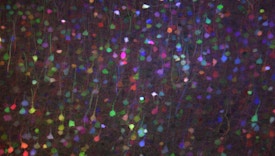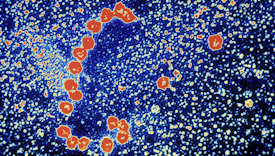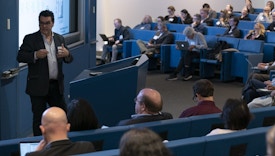
Nadav Ahituv worked on human hereditary hearing loss during his graduate studies and was part of the team that cloned two novel human hereditary hearing-loss-causing genes. His postdoctoral fellowships were at the Lawrence Berkeley National Laboratory and the Joint Genome Institute, where he specialized in comparative and functional genomics. He carried out numerous functional genomics projects that combined computational and in vivo functional assays to characterize gene-regulatory sequences in the human genome. He was involved in generating the first large-scale human enhancer database and characterized numerous gene-regulatory sequences using mouse transgenic, knockout and knock-in technologies. In addition, using high-throughput sequencing, familial analysis and functional characterization, he linked numerous nucleotide variants with obesity susceptibility.
Ahituv is currently a professor at the University of California, San Francisco. His lab is focused on identifying gene-regulatory elements and linking nucleotide variation within them to various phenotypes, including morphological differences between species, drug response and human disease. In addition, his lab is developing massively parallel reporter assays that allow for high-throughput functional characterization of gene-regulatory elements and the use of gene-regulatory elements as therapeutic targets.



